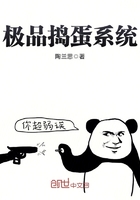As the school-master had foretold, there was no room at college for Jack.
Several times Major Buford took the dog home with him, but Jack would not stay. The next morning the dog would turn up at the door of the dormitory where Chad and the school-master slept, and as a last resort the boy had to send Jack home. So, one Sunday morning Chad led Jack out of the town for several miles, and at the top of a high hill pointed toward the mountains and sternly told him to go home. And Jack, understanding that the boy was in earnest, trotted sadly away with a placard around his neck:
I own this dog. His name is Jack. He is on his way to Kingdom Come. Please feed him. Uncle Joel Turner will shoot any man who steels him. CHAD.
It was no little consolation to Chad to think that the faithful sheep-dog would in no small measure repay the Turners for all they had done for him.
But Jack was the closest link that bound him to the mountains, and dropping out of sight behind the crest of the hill, Chad crept to the top again and watched Jack until he trotted out of sight, and the link was broken. Then Chad went slowly and sorrowfully back to his room.
It was the smallest room in the dormitory that the school-master had chosen for himself and Chad, and in it were one closet, one table, one lamp, two chairs and one bed--no more. There were two windows in the little room--one almost swept by the branches of a locust-tree and overlooking the brown-gray sloping campus and the roofs and church-steeples of the town--the other opening to the east on a sweep of field and woodland over which the sun rose with a daily message from the unseen mountains far beyond and toward which Chad had sent Jack trotting home. It was a proud day for Chad when Caleb Hazel took him to "matriculate"--leading him from one to another of the professors, who awed the lad with their preternatural dignity, but it was a sad blow when he was told that in everything but mathematics he must go to the preparatory department until the second session of the term--the "kitchen," as it was called by the students. He bore it bravely, though, and the school-master took him down the shady streets to the busy thoroughfare, where the official book-store was, and where Chad, with pure ecstasy, caught his first new books under one arm and trudged back, bending his head now and then to catch the delicious smell of the fresh leaves and print. It was while he was standing with his treasures under the big elm at the turnstile, looking across the campus at the sundown that two boys came down the gravel path. He knew them both at once as Dan and Harry Dean. Both looked at him curiously, as he thought, but he saw that neither knew him and no one spoke.
The sound of wheels came up the street behind him just then, and a carriage halted at the turnstile to take them in. Turning, Chad saw a slender girl with dark hair and eyes and heard her call brightly to the boys. He almost caught his breath at the sound of her voice, but he kept sturdily on his way, and the girl's laugh rang in his ears as it rang the first time he heard it, was ringing when he reached his room, ringing when he went to bed that night, and lay sleepless, looking through his window at the quiet stars.
For some time, indeed, no one recognized him, and Chad was glad. Once he met Richard Hunt riding with Margaret, and the piercing dark eyes that the boy remembered so well turned again to look at him. Chad colored and bravely met them with his own, but there was no recognition. And he saw John Morgan--Captain John Morgan--at the head of the "Lexington Rifles," which he had just formed from the best blood of the town, as though in long preparation for that coming war--saw him and Richard Hunt, as lieutenant, drilling them in the campus, and the sight thrilled him as nothing else, except Margaret, had ever done. Many times he met the Dean brothers on the playground and in the streets, but there was no sign that he was known until he was called to the blackboard one day in geometry, the only course in which he had not been sent to the "kitchen." Then Chad saw Harry turn quickly when the professor called his name. Confused though he was for a moment, he gave his demonstration in his quaint speech with perfect clearness and without interruption from the professor, who gave the boy a keen look as he said, quietly:
"Very good, sir!" And Harry could see his fingers tracing in his class-book the figures that meant a perfect recitation.
"How are you, Chad?" he said in the hallway afterward.
"Howdye!" said Chad, shaking the proffered hand.
"I didn't know you--you've grown so tall. Didn't you know me?""Yes."
"Then why didn't you speak to me?"
"'Cause you didn't know ME."
Harry laughed. "Well, that isn't fair. See you again.""All right," said Chad.
That very afternoon Chad met Dan in a football game--an old-fashioned game, in which there were twenty or thirty howling lads on each side and nobody touched the ball except with his foot--met him so violently that, clasped in each other's arms, they tumbled to the ground.
"Leggo!" said Dan.
"S'pose you leggo!" said Chad.
As Dan started after the ball he turned to look at Chad and after the game he went up to him.
"Why, aren't you the boy who was out at Major Buford's once?""Yes." Dan thrust out his hand and began to laugh. So did Chad, and each knew that the other was thinking of the tournament.
"In college?"
"Math'matics," said Chad. "I'm in the kitchen fer the rest.""Oh!" said Dan. "Where you living?" Chad pointed to the dormitory, and again Dan said "Oh!" in a way that made Chad flush, but added, quickly:
"You better play on our side to-morrow."















